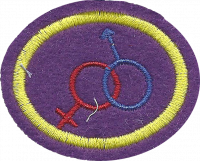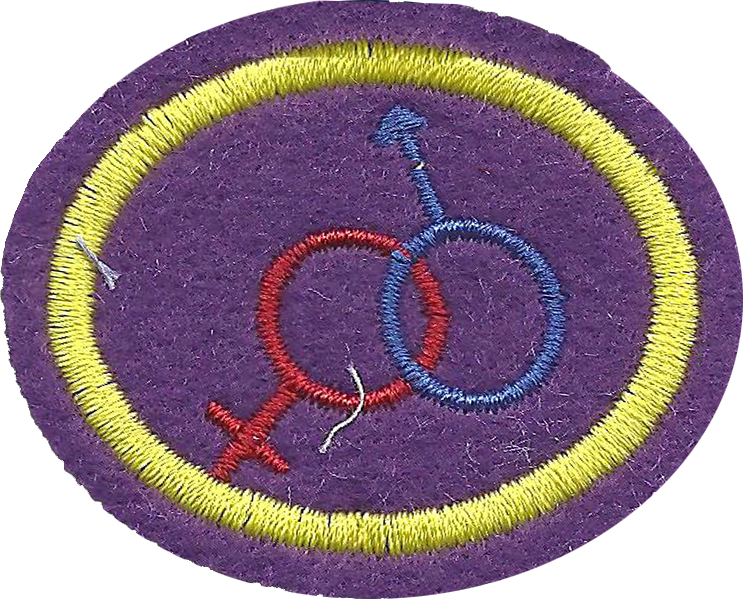Difference between revisions of "AY Honors/Human Sexuality/Answer Key/es"
From Pathfinder Wiki
< AY Honors | Human SexualityAY Honors/Human Sexuality/Answer Key/es
(Created page with "</noinclude> <!-- 8. ¿Qué es el embarazo, cómo se realiza y cuánto tiempo dura? Hacer un cuadro mensual con las principales características del embarazo. -->") |
(Updating to match new version of source page) |
||
| (26 intermediate revisions by 2 users not shown) | |||
| Line 1: | Line 1: | ||
| − | + | {{HonorSubpage}} | |
| − | + | <section begin="Body" /> | |
| − | {{ | ||
| − | |||
| − | |||
| − | |||
| − | |||
| − | |||
| − | |||
| − | |||
| − | |||
| − | }} | ||
| − | |||
| − | |||
| − | |||
| − | |||
| − | |||
| − | <section begin="Body" /> | ||
{{ansreq|page={{#titleparts:{{PAGENAME}}|2|1}}|num=1}} | {{ansreq|page={{#titleparts:{{PAGENAME}}|2|1}}|num=1}} | ||
<noinclude></noinclude> | <noinclude></noinclude> | ||
| Line 25: | Line 9: | ||
{{ansreq|page={{#titleparts:{{PAGENAME}}|2|1}}|num=2}} | {{ansreq|page={{#titleparts:{{PAGENAME}}|2|1}}|num=2}} | ||
<noinclude></noinclude> | <noinclude></noinclude> | ||
| − | <!-- 2. | + | <!-- 2. ¿Cuál es el Modelo Divino para la sexualidad? ¿Qué dice la Biblia o el Espíritu de Profecía al respecto? --> |
<noinclude></noinclude> | <noinclude></noinclude> | ||
| Line 31: | Line 15: | ||
{{ansreq|page={{#titleparts:{{PAGENAME}}|2|1}}|num=3}} | {{ansreq|page={{#titleparts:{{PAGENAME}}|2|1}}|num=3}} | ||
<noinclude></noinclude> | <noinclude></noinclude> | ||
| − | <!-- 3. | + | <!-- 3. ¿Qué es el sexo biológico? ¿Cuántas clases hay? --> |
| − | + | El sexo biológico es lo que define a una persona como hombre, mujer o intersexual. Está determinado por la anatomía sexual, los cromosomas y las hormonas de una persona. El sexo biológico a menudo se denomina simplemente «sexo». | |
| − | + | Entonces hay tres tipos: | |
| − | * | + | * Intersexual |
| − | * | + | * Mujer |
| − | * | + | * Hombre |
<noinclude></noinclude> | <noinclude></noinclude> | ||
| Line 43: | Line 27: | ||
{{ansreq|page={{#titleparts:{{PAGENAME}}|2|1}}|num=4}} | {{ansreq|page={{#titleparts:{{PAGENAME}}|2|1}}|num=4}} | ||
<noinclude></noinclude> | <noinclude></noinclude> | ||
| − | <!-- 4. | + | <!-- 4. Dibujar los órganos sexuales masculino y femenino, y responder: --> |
<noinclude></noinclude> | <noinclude></noinclude> | ||
| Line 93: | Line 77: | ||
{{ansreq|page={{#titleparts:{{PAGENAME}}|2|1}}|num=9}} | {{ansreq|page={{#titleparts:{{PAGENAME}}|2|1}}|num=9}} | ||
<noinclude></noinclude> | <noinclude></noinclude> | ||
| − | <!-- 9. | + | <!-- 9. ¿Qué es el aborto? ¿Cuáles son las consecuencias físicas y psicológicas presentes? ¿En qué casos es aconsejable el aborto? --> |
| − | + | El aborto es la interrupción temprana de un embarazo mediante una intervención quirúrgica o farmacológica con la intención de que el feto no sobreviva. | |
| − | + | {{clear}} | |
| − | + | {{clear}} | |
| − | + | {{clear}} | |
| − | + | {{clear}} | |
<noinclude></noinclude> | <noinclude></noinclude> | ||
| Line 108: | Line 92: | ||
{{ansreq|page={{#titleparts:{{PAGENAME}}|2|1}}|num=10}} | {{ansreq|page={{#titleparts:{{PAGENAME}}|2|1}}|num=10}} | ||
<noinclude></noinclude> | <noinclude></noinclude> | ||
| − | <!-- 10. | + | <!-- 10. ¿Qué es el papel masculino o femenino y qué responsabilidades se le atribuyen a cada uno de acuerdo a su cultura? ¿Cómo los papeles han cambiado a través del tiempo hasta ahora? ¿Por qué son peligrosos los estereotipos de papeles? --> |
<noinclude></noinclude> | <noinclude></noinclude> | ||
| Line 114: | Line 98: | ||
{{ansreq|page={{#titleparts:{{PAGENAME}}|2|1}}|num=11}} | {{ansreq|page={{#titleparts:{{PAGENAME}}|2|1}}|num=11}} | ||
<noinclude></noinclude> | <noinclude></noinclude> | ||
| − | <!-- 11. | + | <!-- 11. ¿Cómo reconocer y protegerse de posibles abusos sexuales? ¿Cuáles son sus peligros? ¿A quién se debe recurrir en caso de que alguien (desconocido, amigo o familiar) le haga insinuaciones o toques indebidos? ¿Por qué es importante no quedarse callado? --> |
<noinclude></noinclude> | <noinclude></noinclude> | ||
| Line 120: | Line 104: | ||
{{ansreq|page={{#titleparts:{{PAGENAME}}|2|1}}|num=12}} | {{ansreq|page={{#titleparts:{{PAGENAME}}|2|1}}|num=12}} | ||
<noinclude></noinclude> | <noinclude></noinclude> | ||
| − | <!-- 12. | + | <!-- 12. ¿Qué son las Enfermedades de Transmisión Sexual - ETS? Responder lo siguiente: --> |
| − | |||
<noinclude></noinclude> | <noinclude></noinclude> | ||
{{ansreq|page={{#titleparts:{{PAGENAME}}|2|1}}|num=12a}} | {{ansreq|page={{#titleparts:{{PAGENAME}}|2|1}}|num=12a}} | ||
| Line 136: | Line 119: | ||
<noinclude></noinclude> | <noinclude></noinclude> | ||
| − | + | {{clear}} | |
| − | |||
| − | |||
| − | |||
| − | |||
| − | |||
<noinclude></noinclude> | <noinclude></noinclude> | ||
| Line 163: | Line 141: | ||
{{ansreq|page={{#titleparts:{{PAGENAME}}|2|1}}|num=13}} | {{ansreq|page={{#titleparts:{{PAGENAME}}|2|1}}|num=13}} | ||
<noinclude></noinclude> | <noinclude></noinclude> | ||
| − | <!-- 13. | + | <!-- 13. Cuando hay una pregunta/duda sobre la sexualidad, ¿a quién se puede acudir? ¿Por qué los amigos de la misma edad son «poco confiables» en el asunto? --> |
| − | |||
| − | + | {{clear}} | |
<noinclude></noinclude> | <noinclude></noinclude> | ||
| Line 172: | Line 149: | ||
{{ansreq|page={{#titleparts:{{PAGENAME}}|2|1}}|num=14}} | {{ansreq|page={{#titleparts:{{PAGENAME}}|2|1}}|num=14}} | ||
<noinclude></noinclude> | <noinclude></noinclude> | ||
| − | <!-- 14. | + | <!-- 14. ¿Qué es la masturbación y cuál es la posición de la iglesia sobre este acto? ¿Con qué otro nombre lo llama Elena G. de White? --> |
| − | |||
| − | + | {{clear}} | |
| − | + | {{clear}} | |
| − | + | {{clear}} | |
| − | + | {{clear}} | |
| − | |||
<noinclude></noinclude> | <noinclude></noinclude> | ||
{{CloseReq}} <!-- 14 --> | {{CloseReq}} <!-- 14 --> | ||
{{ansreq|page={{#titleparts:{{PAGENAME}}|2|1}}|num=15}} | {{ansreq|page={{#titleparts:{{PAGENAME}}|2|1}}|num=15}} | ||
<noinclude></noinclude> | <noinclude></noinclude> | ||
| − | <!-- 15. | + | <!-- 15. ¿Qué es el enamoramiento y el noviazgo? ¿Cuándo es saludable? ¿Cuándo está distorsionado y es perjudicial? ¿Cómo terminar una relación adecuadamente? --> |
<noinclude></noinclude> | <noinclude></noinclude> | ||
{{CloseReq}} <!-- 15 --> | {{CloseReq}} <!-- 15 --> | ||
| + | |||
<noinclude></noinclude> | <noinclude></noinclude> | ||
| − | == | + | ==Referencias== |
| − | |||
| − | |||
<noinclude></noinclude> | <noinclude></noinclude> | ||
| − | + | ||
| + | [[Category:Instructor Required{{GetLangSuffix}}|{{SUBPAGENAME}}]] | ||
| + | {{CloseHonorPage}} | ||
Latest revision as of 21:31, 1 January 2023
Sexualidad humana
Nivel de destreza
1
Año
2012
Version
20.02.2026
Autoridad de aprobación
División Sudamericana
1
¿Qué es la sexualidad humana?
2
¿Cuál es el Modelo Divino para la sexualidad? ¿Qué dice la Biblia o el Espíritu de Profecía al respecto?
3
¿Qué es el sexo biológico? ¿Cuántas clases hay?
El sexo biológico es lo que define a una persona como hombre, mujer o intersexual. Está determinado por la anatomía sexual, los cromosomas y las hormonas de una persona. El sexo biológico a menudo se denomina simplemente «sexo». Entonces hay tres tipos:
- Intersexual
- Mujer
- Hombre
4
Dibujar los órganos sexuales masculino y femenino, y responder:
4a
¿Cuáles son los órganos sexuales/reproductivos internos?
4b
¿Cuáles son los órganos sexuales/reproductivos externos?
4c
¿Cuál es la función de cada uno de estos órganos?
4d
¿Por qué es importante llamar a estos órganos por su nombre correcto?
5
¿Qué es la pubertad? ¿Cuándo se inicia en los varones y en las mujeres? ¿Qué cambios físicos y psicológicos ocurren?
6
¿Qué son la menstruación y los sueños húmedos? ¿A qué edad se inician y cuándo terminan?
7
¿Por qué es importante la higiene genital tanto masculina como femenina?
8
¿Qué es el embarazo, cómo se realiza y cuánto tiempo dura? Hacer un cuadro mensual con las principales características del embarazo.
9
¿Qué es el aborto? ¿Cuáles son las consecuencias físicas y psicológicas presentes? ¿En qué casos es aconsejable el aborto?
El aborto es la interrupción temprana de un embarazo mediante una intervención quirúrgica o farmacológica con la intención de que el feto no sobreviva.
10
¿Qué es el papel masculino o femenino y qué responsabilidades se le atribuyen a cada uno de acuerdo a su cultura? ¿Cómo los papeles han cambiado a través del tiempo hasta ahora? ¿Por qué son peligrosos los estereotipos de papeles?
11
¿Cómo reconocer y protegerse de posibles abusos sexuales? ¿Cuáles son sus peligros? ¿A quién se debe recurrir en caso de que alguien (desconocido, amigo o familiar) le haga insinuaciones o toques indebidos? ¿Por qué es importante no quedarse callado?
12
¿Qué son las Enfermedades de Transmisión Sexual - ETS? Responder lo siguiente:
12a
¿Qué es el VIH?
12b
¿Qué es el SIDA?
12c
¿Cómo se contagia el VIH?
12d
¿Cuánto tiempo transcurre hasta la primera aparición de síntomas?
12e
¿Qué pruebas o exámenes médicos se realizan a una persona para saber si está contagiada?
12f
¿Qué cuidados necesita una persona seropositiva? ¿Qué y cuántas medicinas toma por día?
13
Cuando hay una pregunta/duda sobre la sexualidad, ¿a quién se puede acudir? ¿Por qué los amigos de la misma edad son «poco confiables» en el asunto?
14
¿Qué es la masturbación y cuál es la posición de la iglesia sobre este acto? ¿Con qué otro nombre lo llama Elena G. de White?
15
¿Qué es el enamoramiento y el noviazgo? ¿Cuándo es saludable? ¿Cuándo está distorsionado y es perjudicial? ¿Cómo terminar una relación adecuadamente?



